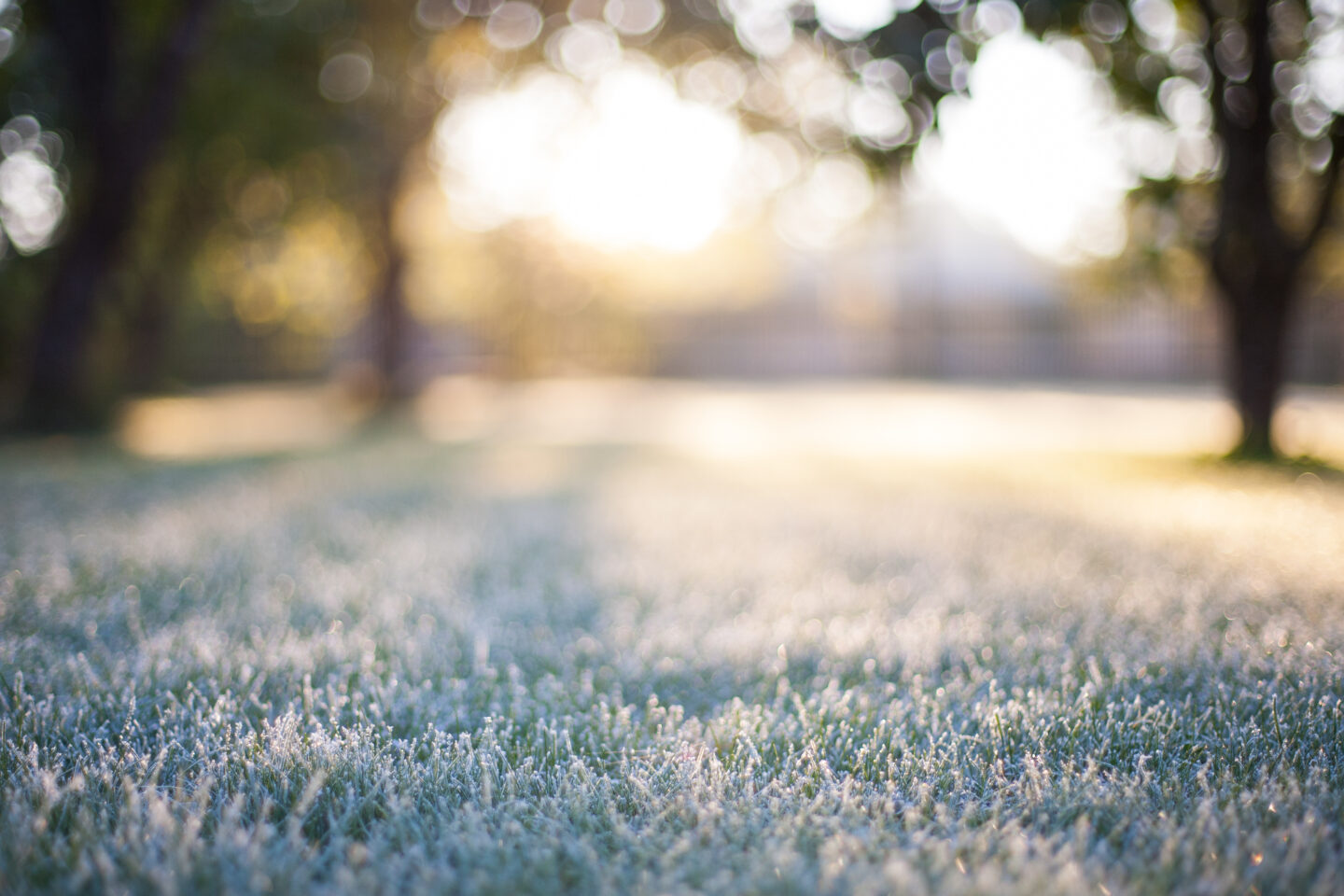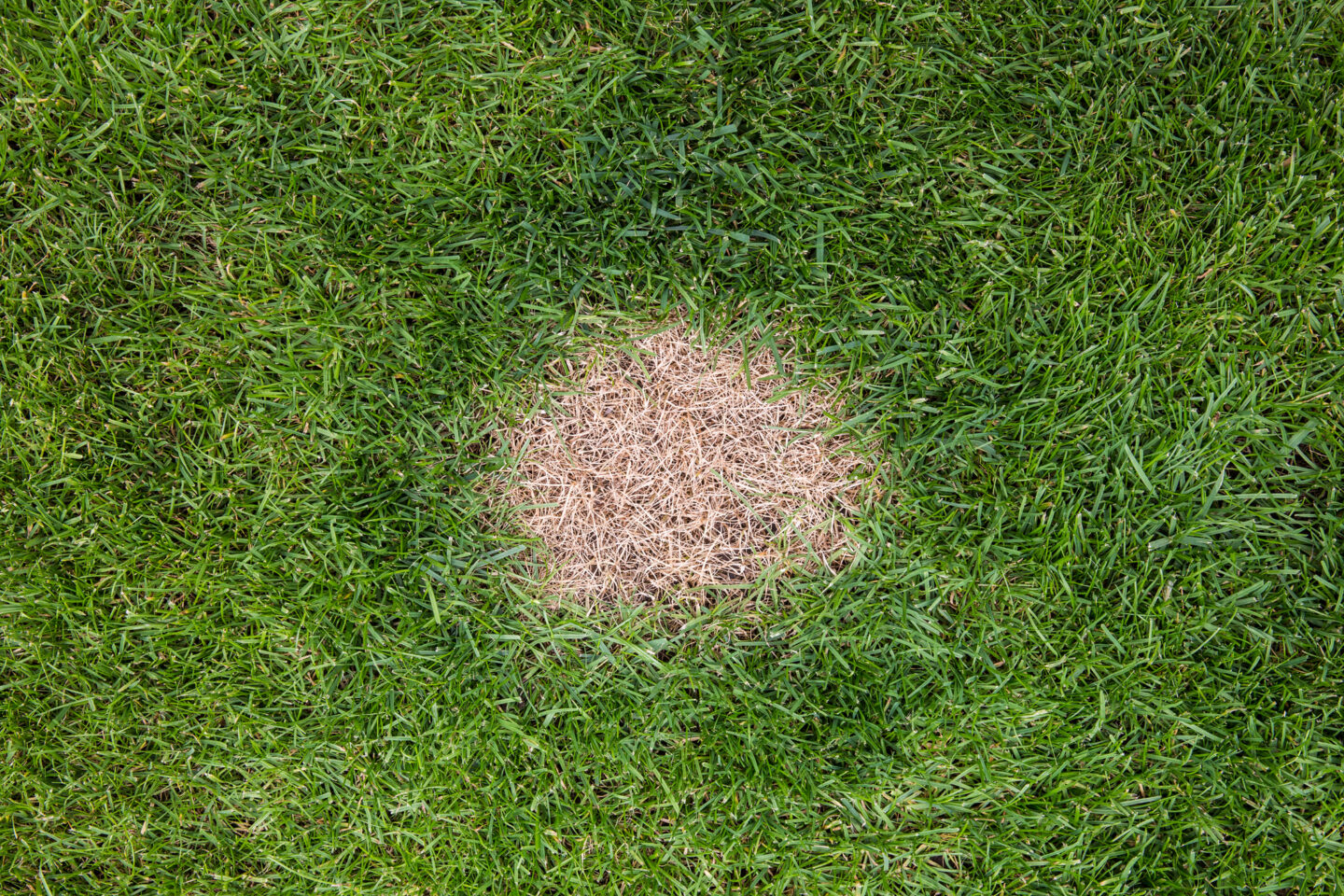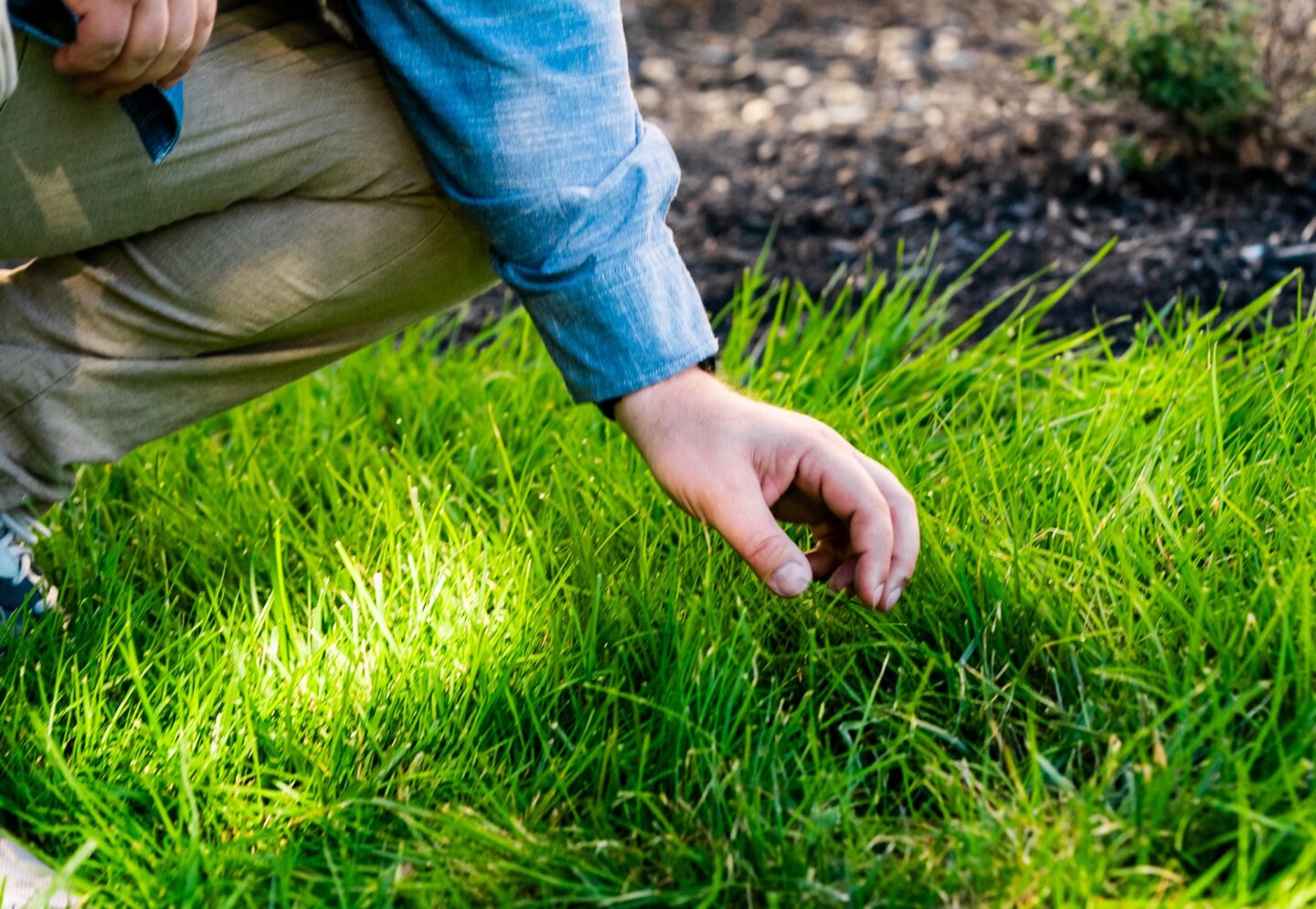What your lawn looks like above the surface will ultimately come down to what’s going on beneath it. That’s because your lawn’s health has everything to do with the soil that it’s rooted in. Of course, understanding the health of your soil (particularly what it may be lacking) is not something that can be done without a lawn soil test.
Despite the extreme importance of this test and the value that it provides homeowners, we often find that many people don’t really know what a lawn soil test is or why it’s important. Since it’s not commonly offered by lawn care companies in Northern Virginia (other than as an additional service you have to ask for), it often doesn’t get the recognition it deserves.
But at Turf’s Up, an annual soil test is included in all of our lawn care packages because we believe it’s that important. It’s not possible to fix a lawn’s problems if we don’t know exactly what they are.
Because we want our clients to understand what a lawn soil test is all about and how it can provide valuable insight, we’ve put together this helpful article that will hopefully answer any questions you might have about testing lawn soil.
What is a Lawn Soil Test?
A lawn soil test is a high-level analysis of your soil’s makeup. It is performed on the lawn by using a special soil probe to pull cores of soil from various areas of the lawn. These cores serve as samples which are then sent to a laboratory where they will be analyzed.
Sometimes, when we’re trying to perform a soil test it becomes abundantly clear that there is an issue (before even sending your soil out) with the soil composition. If we struggle to get the soil probes into the soil then this is a clear indicator that your soil is compacted.
You can check this yourself, as well. If you go out to your own lawn and try to stick a screwdriver in it but can’t, you clearly have a problem with soil that has become compacted. This is an issue that will also have to be solved in order to be able to get your lawn the nutrients it needs based on the findings of your soil test.
Soil compaction can be addressed with an invaluable lawn aeration service. We also recommend topdressing (after aeration) with compost that will fall into the holes made during aeration. As the compost mixed with the clay, it will help create a better layer of topsoil by improving soil structure with microbial life.
What Does a Lawn Soil Test Examine?
When we send the soil samples to the lab, they are examining several different elements with a comprehensive analysis. Let’s look at the main areas that a soil test will explore.
Soil pH
For one, a lawn soil test will tell you the pH of your soil to determine if it’s where it needs to be. Soil pH is a measure of the acidity and alkalinity in soils with pH levels ranging from 0 to 14—with 7 being neutral, below 7 acidic, and above 7 alkaline.

It’s important that your soil pH in proper balance. Incorrect soil pH can cause several problems that need to be addressed. As the pH falls or rises too far from where it’s supposed to be, it alters the soil chemistry and prevents the grass from taking up nutrients as it should. This can also create an environment that is favorable for weed growth. You want to generate an environment where grass loves to grow—not weeds.
Soil Nutrient Make-up
In addition to pH, a lawn soil test is also looking at the amount of phosphorous, potassium, and other nutrients that your lawn’s soil contains in order to determine whether these levels are adequate for your lawn to perform its best.
These nutrients are also really important to the health of your lawn and can cause problems when out of whack. For example, if you have too little phosphorus, then it’s going to affect the development of your lawn’s root system. If you have too little potassium, your lawn will be more susceptible to environmental stresses.
That’s why it’s so important that your lawn’s nutrients are in the proper balance.
Your Soil Might be Completely Different from your Neighbor’s
It’s important to recognize that your soil health can vary dramatically from your neighbor’s. In other words, you cannot assume that just because your neighbor has healthy soil that you do, too.

We get a lot of confusion around this. A lot of homeowners assume that if their neighbor’s lawn is lush and green, theirs will be too (as long as they follow the same regimen). But you and your neighbor can be on the exact same lawn care program and achieve dramatically different results if you have a soil health problem.
This happens often with new construction. Builders often ship soil in from all over to fill in properties and unfortunately, it’s sometimes it’s pretty junky soil. When that’s the case, it won’t matter what lawn care products you put on your lawn or what program you’re a part of—you’re never going to get good results until you correct your soil problem.
How Testing Lawn Soil Reveals Problems and Solutions
The most important thing to know about a lawn soil test is that it will tell us exactly what your lawn needs to fix your soil so that our lawn care program can be optimally effective.
Shedding Light on Problems
When a lawn is experiencing a problem with soil pH, it can cause several different problems. These include the following.
Discoloration: Your lawn may be yellowing or just not as green as it could be.
Lack of Thickness: When lawn health is struggling, your lawn will not be as thick as it should.
Weed Pressure: When the health of the soil is poor and the grass is thin, opportunistic weeds are going to start to invade. Actually, some weeds prefer soil with a low pH and they will thrive in these conditions.
Oftentimes in Northern Virginia, soil tends to be too acidic. It’s also not uncommon for it to be lacking proper nutrient levels. Over time, these levels can vary, which is why we perform a soil test each year. Even the amount of rainfall we’ve received can impact whether nutrients are depleted or not.
On the Road to Recovery
When we get the results of a soil test back, we can make the exact corrections that are needed by applying additional treatments of products. For example, one of the key ways in which we correct soil pH problems for Northern Virginia lawns is through a limestone application that is performed in the late fall or winter.
Exactly how much limestone should be added to your lawn depends on the exact pH, behooving the importance of the soil test. Even so, many companies fail to include this service, meaning they’re basically guessing at how much lime is needed. This is a disservice to you as this is best performed as a customized application in order to yield the best results.
Likewise, if some of the nutrient levels are substantially off, a lawn care program alone isn’t going to fix the problem. These programs are designed to replenish nutrients used each year, not address major deficiencies that will always exist. An additional treatment of the specific amount of the deficient nutrients in your soil (at the precise rate indicated on your soil test report) will help to get your baseline levels where they can then be maintained from there on out.
Generating Customized Lawn Care Success
At the end of the day, it’s important to remember that what your lawn may need can be completely different from what another lawn may need. That’s why a lawn care program that does not include annual soil testing (but just treats every lawn the same) is inherently flawed. There is simply no way for that company to know exactly what your lawn needs to succeed.

We want to be clear: our lawn care program will not be successful on your lawn if your soil health is poor.
We absolutely must fix a soil problem before anything else can be successful. You can throw all the products that you want down on your lawn but if your soil remains in poor shape, it’s not going to get you the results you want.
Of course, this can take time. We always aim to set our customers up with realistic expectations and we’ll be honest that sometimes it can take a full season or two until your lawn really turns around and may require some additional treatments if major deficiencies exist. But it will. If you can hang on and give the program and supplemental treatments time to work, you’ll see the results.
Unfortunately, there are a lot of lawn care companies in the Ashburn, Aldie, and Leesburg, VA area that promise quick fixes and this simply isn’t realistic. No quick fix will ever cure a soil health problem. Many of the lawn care services that offer these types of speedy solutions aren’t even soil testing your lawn so how can they possibly even know what your lawn actually needs to perform its best? That should be a red flag right there.
If we had to sum up the power of a lawn soil test it would be that it allows us to generate customized success for each of our customers. We can provide your lawn with exactly what it needs in order for our lawn care program to be most effective. By being patient and letting us utilize this valuable tool, we can get your lawn on track to excellent health.
If you’re ready to start getting the lawn care results you desire at your Ashburn, Aldie, or Leesburg, VA home, talk to an expert, choose a solution (all of which include soil testing), and get ready to reap the rewards.













